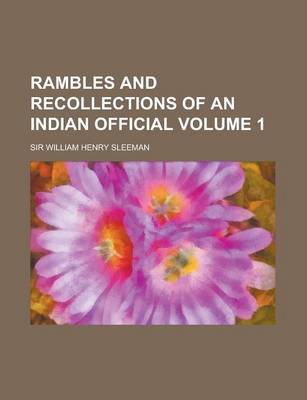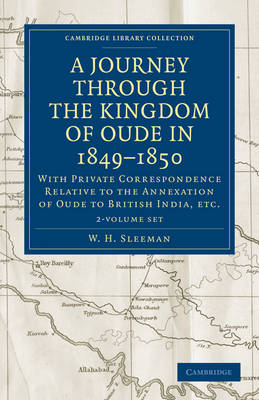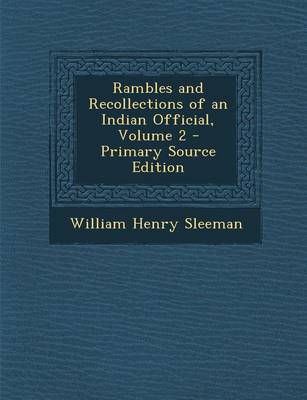Cambridge Library Collection - South Asian History
3 primary works • 7 total works
Volume 1
A Journey Through the Kingdom of Oude, in 1849-1850 (Volume 1)
by W. H. Sleeman and William Henry Sleeman
Volume 2
Volume 2
Rambles and Recollections of an Indian Official Volume 1
by W. H. Sleeman and William Henry Sleeman
A Journey Through the Kingdom of Oude in 1849-1850 2 Volume Set
by W. H. Sleeman
Rambles and Recollections of an Indian Official, Volume 2
by W. H. Sleeman




